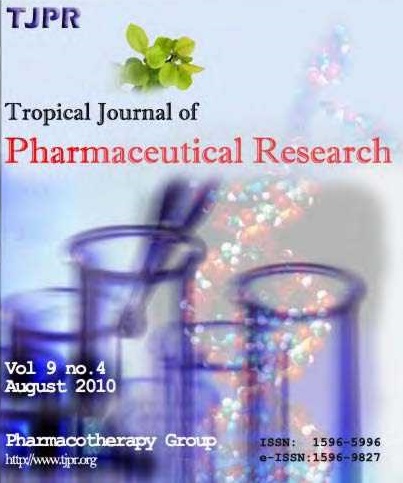Efficacy of diquafosol sodium combined with M22 optimized pulsed light in the treatment of dry eye due to meibomian gland dysfunction
IF 0.6
4区 医学
Q4 PHARMACOLOGY & PHARMACY
引用次数: 0
Abstract
Purpose: To determine the efficacy and safety of 3 % diquafosol sodium combined with M22 optimized pulse light (OPT) in the treatment of dry eye due to meibomian gland dysfunction (MGD). Methods: Data from 97 dry eye patients admitted to Shantou Balder Eye Hospital with MGD-induced dry eye illness between August 2019 and June 2021 were retrospectively reviewed and analyzed. Patients meeting MGD diagnostic criteria in ophthalmology and exhibiting MGD-induced dry eye signs were split into two groups. The medication group (43 cases) received 3 % diquafosol sodium eye drops six times a day for three months, while the pulsed light group (44 cases) underwent three M22 OPT sessions at one-month intervals. Treatment efficacy of the two methods were compared by assessing changes in ocular surface, symptom severity, inflammatory factors (hs-CRP, IL-8, IL-1β), and quality of life before and three months after treatment commenced. Adverse reactions were also recorded. Results: Pulsed light group showed a slightly higher (but not significant) total effective rate (95.45 %) than the medication group (93.02 %; p > 0.05). Three months post-treatment, both groups exhibited significant improvements in various indicators such as FL, OSDI, symptom scores, tear biomarker levels, and overall eye health (p < 0.05). The incidence of adverse reactions was similar between the medication (4.65 %) and pulsed light (9.09 %) groups. Conclusion: Treatment with 3 % diquafosol sodium and M22 OPT for MGD-induced dry eye yields comparable efficacy and safety, improving symptoms, ocular surface function, reducing inflammation, and enhancing quality of life. However, 3 % diquafosol sodium shows better patient tolerance and fewer adverse reactions, but further research is needed due to the limited number of patients in this study.双喹fosol钠联合M22优化脉冲光治疗睑板腺功能障碍所致干眼症的疗效观察
目的:探讨3%双氟泊钠联合M22优化脉冲光(OPT)治疗睑板腺功能障碍(MGD)型干眼症的疗效和安全性。方法:回顾性分析2019年8月至2021年6月汕头市巴尔德眼科医院收治的97例mgd性干眼症患者的资料。符合MGD眼科诊断标准并表现出MGD干眼体征的患者分为两组。药物治疗组(43例)每天6次使用3%双氟索钠滴眼液,持续3个月,而脉冲光治疗组(44例)每隔一个月接受3次M22 OPT治疗。比较两种治疗方法治疗前和治疗后3个月的眼表变化、症状严重程度、炎症因子(hs-CRP、IL-8、IL-1β)和生活质量的变化。不良反应也有记录。
结果:脉冲光组总有效率(95.45%)略高于药物组(93.02%),但差异不显著;p比;0.05)。治疗3个月后,两组在各种指标上均有显著改善,如FL、OSDI、症状评分、泪液生物标志物水平和整体眼睛健康(p <0.05)。药物组不良反应发生率为4.65%,脉冲光组不良反应发生率为9.09%。
结论:3%双喹fosol钠联合M22 OPT治疗mgd性干眼症疗效和安全性相当,可改善症状和眼表功能,减轻炎症,提高生活质量。然而,3%双喹fosol钠表现出更好的患者耐受性和更少的不良反应,但由于本研究中患者数量有限,需要进一步研究。
本文章由计算机程序翻译,如有差异,请以英文原文为准。
求助全文
约1分钟内获得全文
求助全文
来源期刊
CiteScore
1.00
自引率
33.30%
发文量
490
审稿时长
4-8 weeks
期刊介绍:
We seek to encourage pharmaceutical and allied research of tropical and international relevance and to foster multidisciplinary research and collaboration among scientists, the pharmaceutical industry and the healthcare professionals.
We publish articles in pharmaceutical sciences and related disciplines (including biotechnology, cell and molecular biology, drug utilization including adverse drug events, medical and other life sciences, and related engineering fields). Although primarily devoted to original research papers, we welcome reviews on current topics of special interest and relevance.

 求助内容:
求助内容: 应助结果提醒方式:
应助结果提醒方式:


